Research in the Joye research group lies at the interface of microbiology and geochemistry. Microbial processes regulate energy and elemental flows in the environment. We investigate these processes in coastal, blue water, and deep-sea environments as well as in polar regions and terrestrial extreme environments. We use field monitoring (including oceanic research cruises and deep-sea submersible dives), laboratory experiments, and molecular ecological techniques to tease apart the suite of factors that regulate the abundance and activity of microorganisms and their role in energy and elemental flows, and we seek to understand these processes as they relate to climate change.
Please visit our research pages to learn more about the research being done by the Joye research group.
Mentoring undergraduates, graduate students, and postdocs is one of the most rewarding aspects of Dr. Joye’s job. The Joye research group is collaborative, collegial, and highly productive. We stress critical-thinking and quantitative skills and challenge the scientists in my group to think outside the box to assure we are not only at the cutting-edge, but that we are pushing it forward. Expectations are high but are communicated clearly, and people thrive in the challenging, yet supportive, atmosphere.
Scientists-in-training master some professional skills in the classroom, in the field, at sea, and even during lively discussions over lunch. A number of additional, more formal, mechanisms are in place to facilitate professional advancement. At the beginning of each semester, group members develop a research proposal describing their goals and objectives, providing a detailed (week-by-week) research plan, and providing a clear path for progress towards a tangible product (e.g. a manuscript). This teaches young scientists to 1) be goal oriented, 2) think forward, 3) hone their writing skills, and 4) work towards a written product.
For group meetings, each person gives a topical presentation (an interesting topic that is assigned) and a data presentation (on individual research) each semester. Young scientists may be involved proposal development and in manuscript reviews and have the opportunity to attend at least one professional meeting to share their research results with the community. The ultimate goal is to assure that group members advance professionally and personally during their time under my tutelage to guarantee a successful transition into postdoc and ultimately full-time professional positions.
Visit the contact us page for specific questions about the lab or for Dr. Joye.
UGA Graduate School
UGA Marine Science Department

